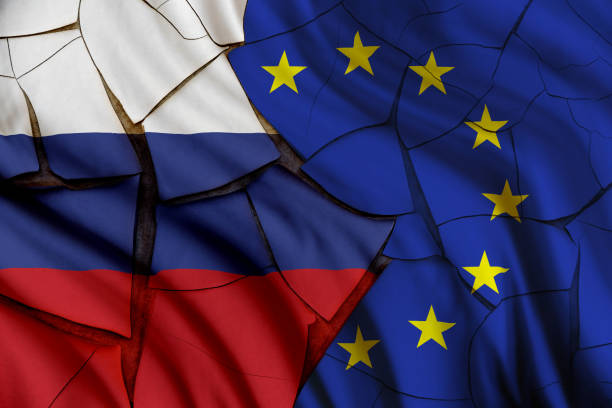By Hionoulla Andreou
The European Union has introduced a new sanctions framework aimed at addressing human rights violations, repression of civil society, and undermining democracy in Russia. The new regime comprises of Council Implementing Regulation (EU) 2024/1488 of 27 May 2024, implementing Regulation (EU) 2024/1485 concerning restrictive measures in view of the situation in Russia, including the list of sanctioned individuals and entities, and Council Regulation (EU) 2024/1485 of 27 May 2024 concerning restrictive measures in view of the situation in Russia.
The additional measures against Russia were proposed by Josep Borrell, the EU High Representative for Foreign Affairs and Security Policy, following the death of Russian opposition leader Alexei Navalny in a Siberian prison in February 2024. Navalny’s death was another sign of the escalating repression in Russia, prompting the EU to take stronger measures against those responsible for human rights abuses.
The new sanctions regime targets individuals and entities involved in serious human rights violations, repression of civil society, and actions undermining democracy and the rule of law in Russia. Those listed under the new regime are subject to asset freezes, and EU citizens and companies are prohibited from making funds available to them. Additionally, listed individuals are subject to a travel ban, preventing their entrance or transition through EU territories.
Moreover, it also introduces sectoral restrictions on the export of equipment that could be used for internal repression, such as firearms, ammunition, related accessories, and technology and software intended for information security and surveillance.
The new sanctions framework is designed to work in conjunction with existing regulations, specifically Regulation (EU) No 833/2014, which also addresses restrictive measures against Russia in light of its destabilising actions in Ukraine. The items listed in Annexes I and II of the new regulation are subject to restrictions unless they fall under the purview of Regulation (EU) No 833/2014, in which case the latter’s restrictions take precedence.
The new measures introduced by the EU are expected to further isolate Russian officials and entities involved in human rights abuses, potentially straining Russia’s relationships with EU member states and complicating its international dealings. These measures reinforce the EU’s commitment to human rights and democracy, signaling a strong stance against repression. In addition, the new sanctions regime may influence other international actors to adopt similar measures, increasing global pressure on Russia.
The EU’s establishment of a new sanctions framework against Russia marks a significant step in its efforts to combat human rights violations and support democratic principles. By targeting individuals and entities responsible for systemic repression, the EU aims to hold the Russian leadership accountable and deter future abuses. The effectiveness of these sanctions will depend on continued international cooperation and vigilance.
Relevant legal acts:
- Council Implementing regulation (EU) 2024/1488 of 27 May 2024 implementing Regulation (EU) 2024/1485 concerning restrictive measures in view of the situation in Russia (including the list of sanctioned individuals and entity)
- Council regulation (EU) 2024/1485 of 27 May 2024 concerning restrictive measures in view of the situation in Russia
For all enquiries relating to sanctions, you may contact our team at info@compliancemk.com.
The details presented by MK Compliance Limited are intended for general informational purposes and should not be interpreted as formal or professional legal advice. It is recommended not to take any actions or abstain from them solely based on the information provided above. For specific guidance, it is advised to seek legal or other professional advice.
